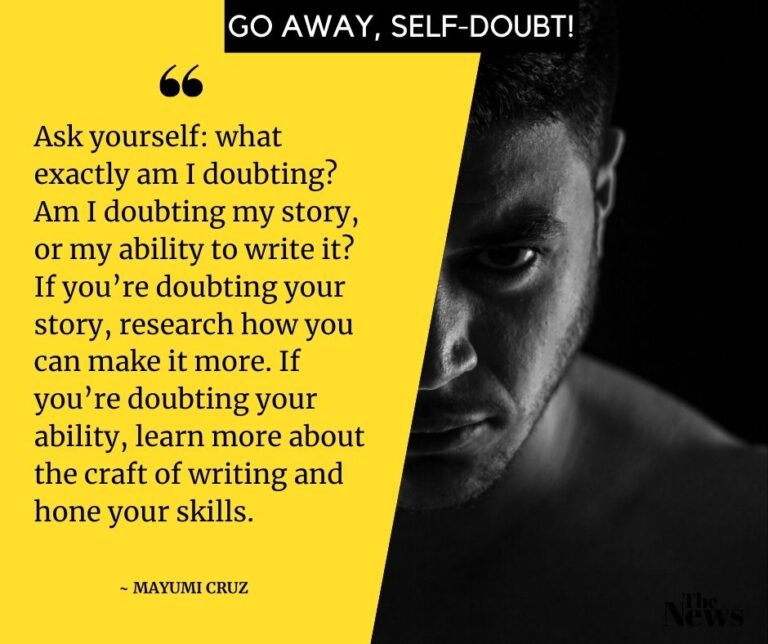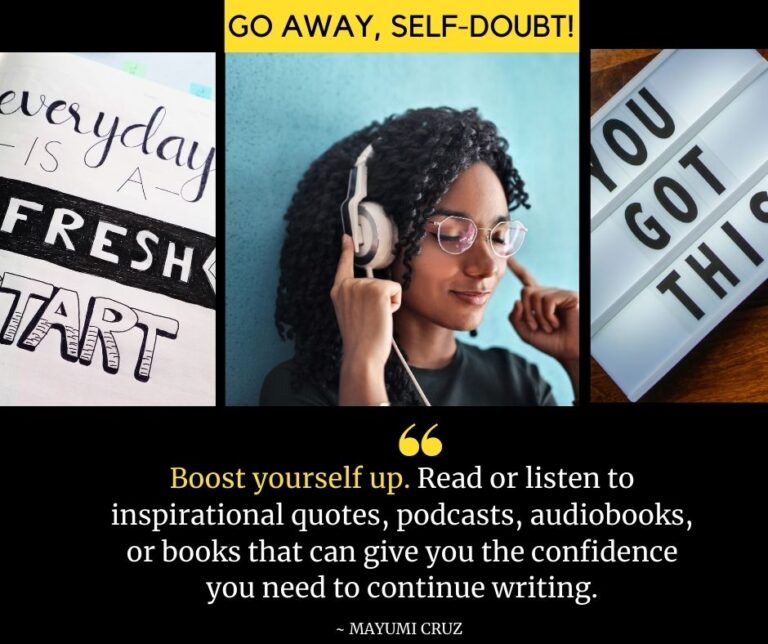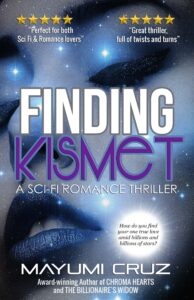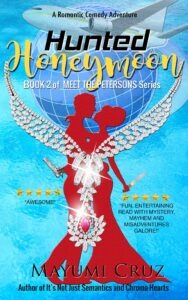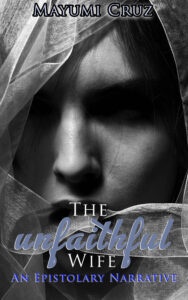There never comes a day when I don’t ask myself, “Who am I to write a story/book? Is this even good? Will people even buy it? My writing isn’t as good as [another author]!”
If you’re like me, you’ll know these are the moments when self-doubt attacks.
When Self-Doubt Attacks
Self-doubt happens when we lack confidence or we feel incapable of writing or doing anything related to writing. We feel uncertain, we worry, we think we’re not good enough.
In small doses, self-doubt can be helpful. It can force us to take a closer look at ourselves and reflect on what areas of our writing still needs improvement, or what things we must learn more to be a better writer.
But excessive self-doubt can also be dangerous. It can hinder our writing process in the form of writer’s block. It can lower our self-esteem to the point that we might quit writing altogether. It can give us feelings of anxiety and depression which may affect our relationship with our loved ones.
That’s why we have to stop self-doubt at once before it swallows us whole. How?
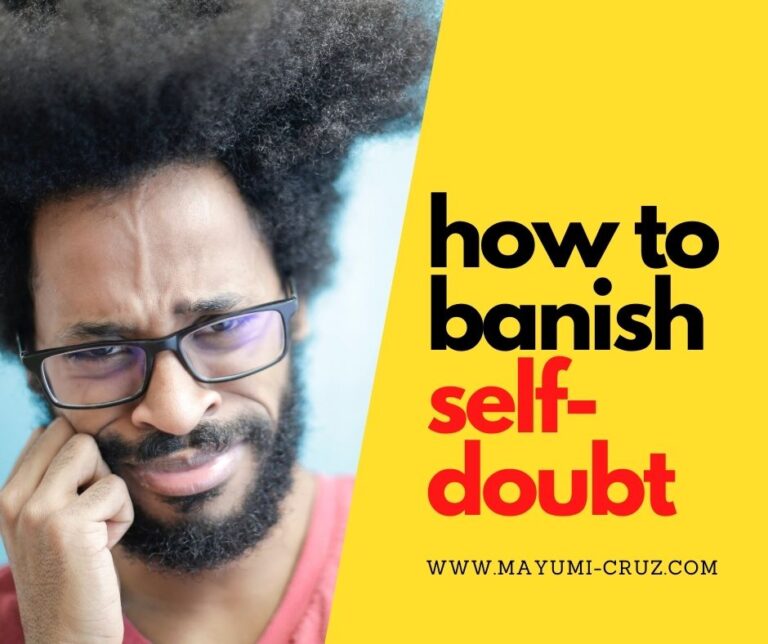
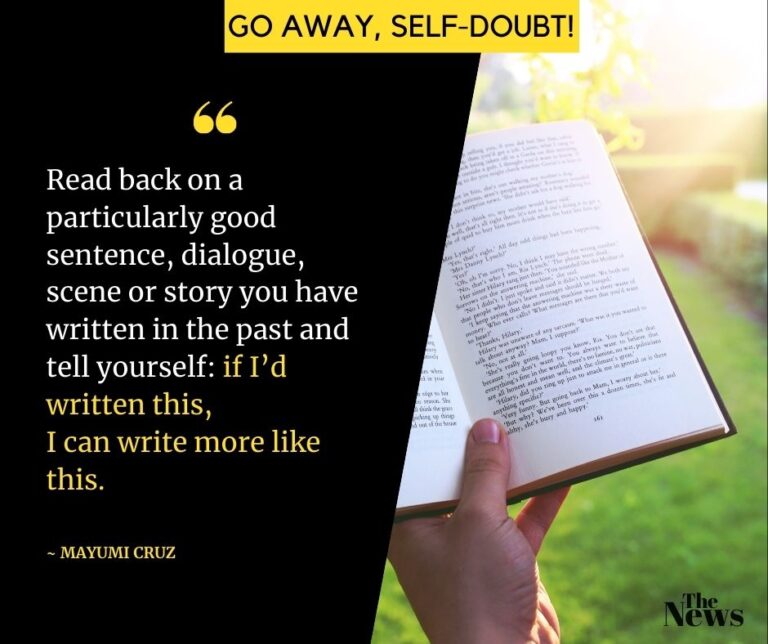
Easiest Way to Banish Self-Doubt
This might be funny, but it can be as easy as telling yourself: “Go away, self-doubt!”
When self-doubt rears its ugly head, strike it down hard immediately.
Before it scares you, scare it away.
But if it doesn’t work, here are some other effective ways to stop self-doubt:
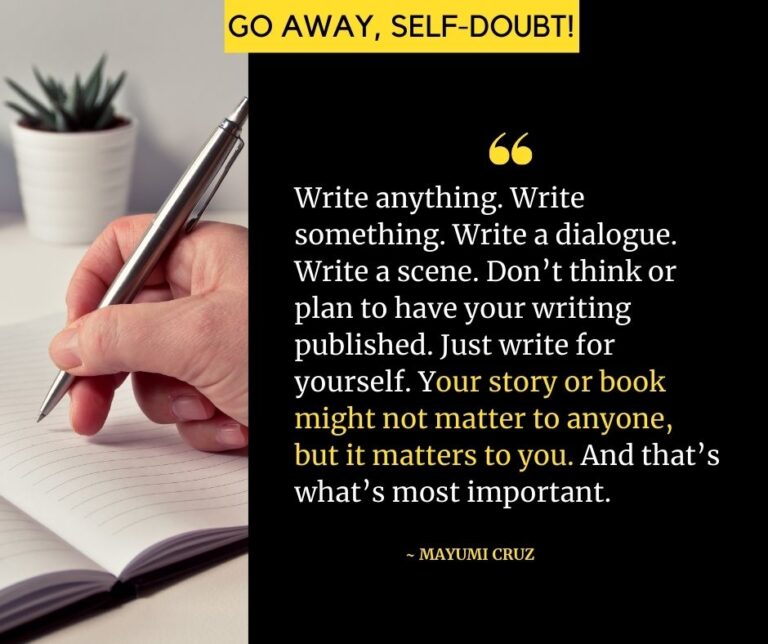
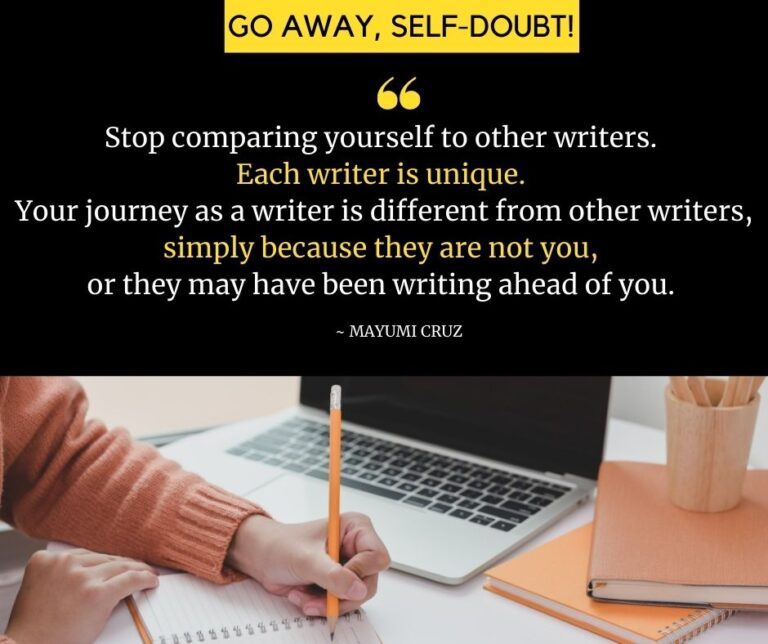
More Ways to Banish Self-Doubt
- Read back on a particularly good sentence, dialogue, scene or story you have written in the past. Writers are their own worst critics, but there must even be one particular line or chapter or story that would have passed our high and strict standards. Read back and tell yourself: if I’d written this, I can write more like this.
- Write yourself out of self-doubt. Write anything. Write something. Write a dialogue. Write a scene. Don’t think or plan to have your writing published. Just write for yourself. Write the story you want to read, not the story you want others to read. Your story or book might not matter to anyone, but it matters to you. And that’s what’s most important.
- Stop comparing yourself to other writers. Each writer is unique. Your journey as a writer is different from other writers, simply because they are not you, or they may have been writing ahead of you. They have months, even years or decades of experience and learning against you. They’ve been there, done that and on their way back, while you’re still on the road, so to speak. There really is no point of comparison.
- Face your fear and act on it. Ask yourself: what exactly am I doubting? Am I doubting my story, or my ability to write it? If you’re doubting the feasibility of your story, research on how you can make it more viable or workable. If you’re doubting your ability, learn more about the craft of writing and hone your skills.
- Boost yourself up. Read or listen to someone else’s enthusiasm, motivation and constructive optimism. Examples of these are inspirational quotes, podcasts, audiobooks, or books that can give you the confidence you need to continue writing.
Don’t let self-doubt prevent you from becoming the writer you want to be.
